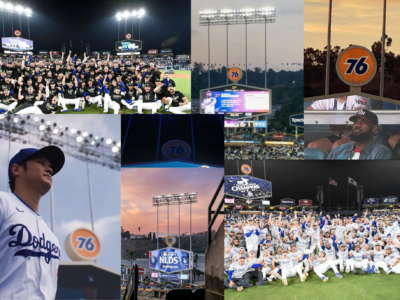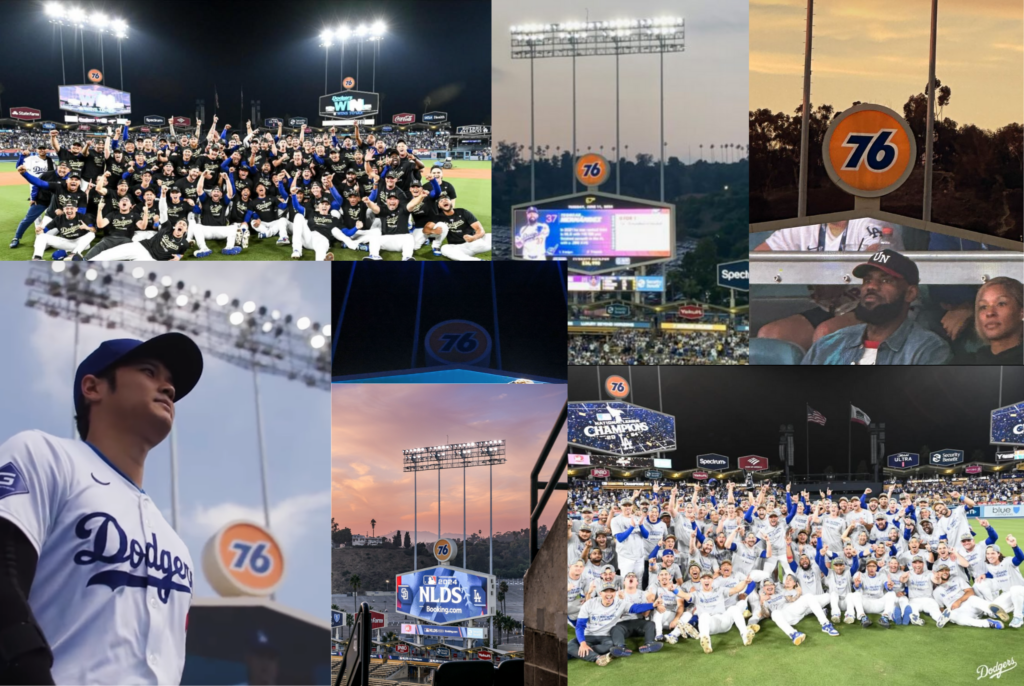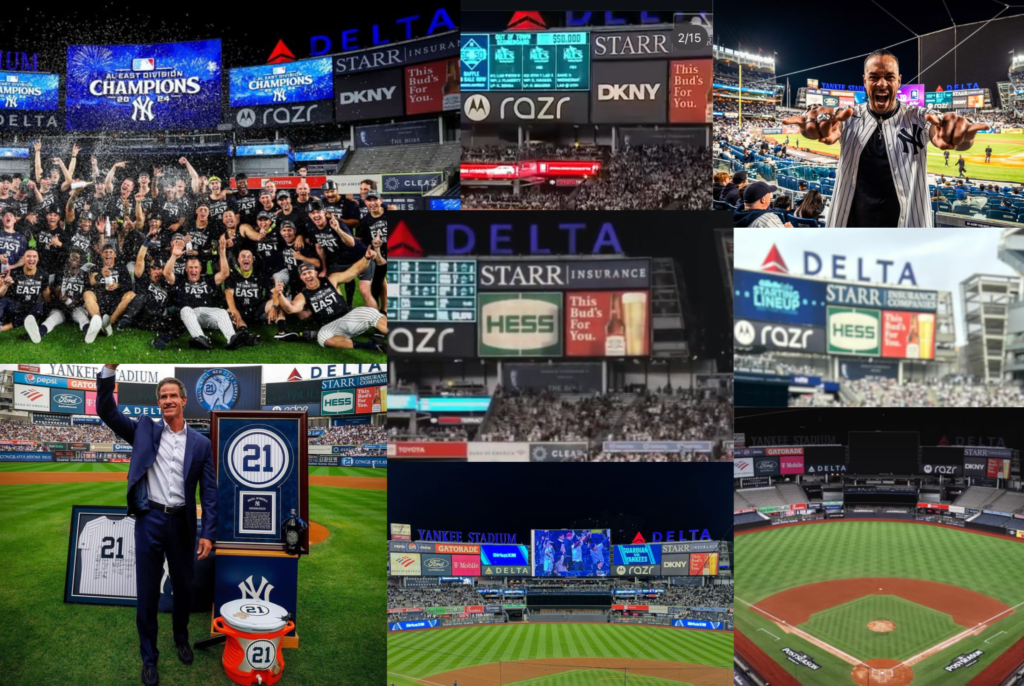The Yankees Already Beat the Dodgers at One Thing
Legal Planet: Environmental Law and Policy 2024-10-25


The Dodgers and the Yankees in the World Series. That’s the zenith of baseball rivalries and I’m rooting for the home team. Which is why I hate to say it, but the Yankees have already beaten the boys in blue at one thing: their climate commitment.
As of this season, the Yankees dropped their most visible Big Oil sponsor from the stadium scoreboard—a billboard for Hess Oil. Meanwhile, the Dodgers keep on shilling for 76 gas by putting that big orange ball logo on the scoreboards, bobbleheads, souvenir towels, and other merch. East Coast 1: West Coast: 0.
Here’s the big picture: Our survey of sponsorships across the NBA, NFL, MLB, NHL, MLS, and WNBA revealed more than 60 sponsorship deals with high-polluting companies. That includes sponsorship deals with oil and gas companies like 76, owned by Phillips 66, as well as utility companies that generate electricity from predominantly fossil fuels or sell fossil gas. This at a time when the United Nations Secretary-General has encouraged countries to ban fossil fuel advertising to prevent “greenwashing” by polluters who are most responsible for the climate crisis.
Major League Baseball had 15 oil, gas, and utility sponsorships in our survey. The Dodgers are one of the main offenders, having partnered with 76 gas since Dodger Stadium was built in 1962. The 76 orange ball remains the highest corporate logo atop the outfield scoreboards even though the state of California has active litigation against Phillips 66 and other defendants for deceiving the public about the risk of their product and climate change for decades.
New York Yankees fans used to stare at a big boxy evergreen and white Hess billboard as part of the Yankee Stadium outfield scoreboard. But that changed before this season began. “Hess Oil is no longer a partner, and we removed the Hess billboard,” a media relations representative confirmed to me this week. (No word on whether dropping the sponsorship was motivated by anything in particular.) In its place, an 855-square-foot billboard advertising the fashion brand DKNY now takes up that prime real estate between Motorola and Budweiser ads. DKNY announced a “multifaceted, long-term partnership” with the Yankees that included that “great brand exposure” in the outfield.

The Yankees are also the first (and one of the only) North American major league sports teams to sign on to the U.N. Sports for Climate Action Framework, which aims to bring greenhouse gas emissions in line with the Paris Agreement targets. Vague as that is, participating teams pledge to measure emissions, set reduction goals, and “mobilize [their] fans, athletes, and supply chain in best-practice climate action.” Visitors to Yankee Stadium also have better access to mass transit than perhaps any other MLB stadium.
Compare that to the Dodgers who tout some minimal recycling efforts while making it virtually impossible to get to a ballgame in anything but a car. (As someone who has walked from the Chinatown metro stop to Dodger Stadium and back after the ninth inning with a small child, I can say it’s one of the Top 5 lousiest pedestrian experiences in Los Angeles.)
Worst of all, the Dodgers are now bombarding us fans with not-so-subtle advertising of the big orange 76 ball alongside the blue crew, Shohei Otani, and even local celebrities in the stands like LeBron James. The Dodgers continue to stay mum about the 76 sponsorship despite lots of media attention (even the Japanese magazine Alterna has covered the controversy because of the interest in Otani) and a grassroots petition calling on them to cut ties, which has now collected nearly 23,000 signatures. As for Phillips 66, the company recently announced it will close its Los Angeles refinery complex late next year, but that doesn’t mean it’ll give up its prime real estate in Dodger Stadium when it still has gas stations to promote across the Southland.
If you want to see a profile in courage, look no further than the more than 100 women’s soccer players who just signed an open letter protesting FIFA’s sponsorship deal with Saudi Arabia’s state oil giant Aramco. Their letter calls their sponsorship of the 2027 Women’s World Cup in Brazil, “much worse than an own goal,” (that’s when you kick the ball into your own net) citing Aramco’s contribution to climate change as well as Saudi Arabia’s human rights record. The players are calling on FIFA to replace Aramco “with alternative sponsors whose values align with gender equality, human rights and the safe future of our planet.”
In so many respects, California and Los Angeles are leaders in climate policies. Apparently not when it comes to letting a highly polluting industry sponsor our most beloved sports teams. Instead, New York has beaten us to the punch. Whatever the reason, it’s a good precedent to set. Now, LA needs to step up to the plate.